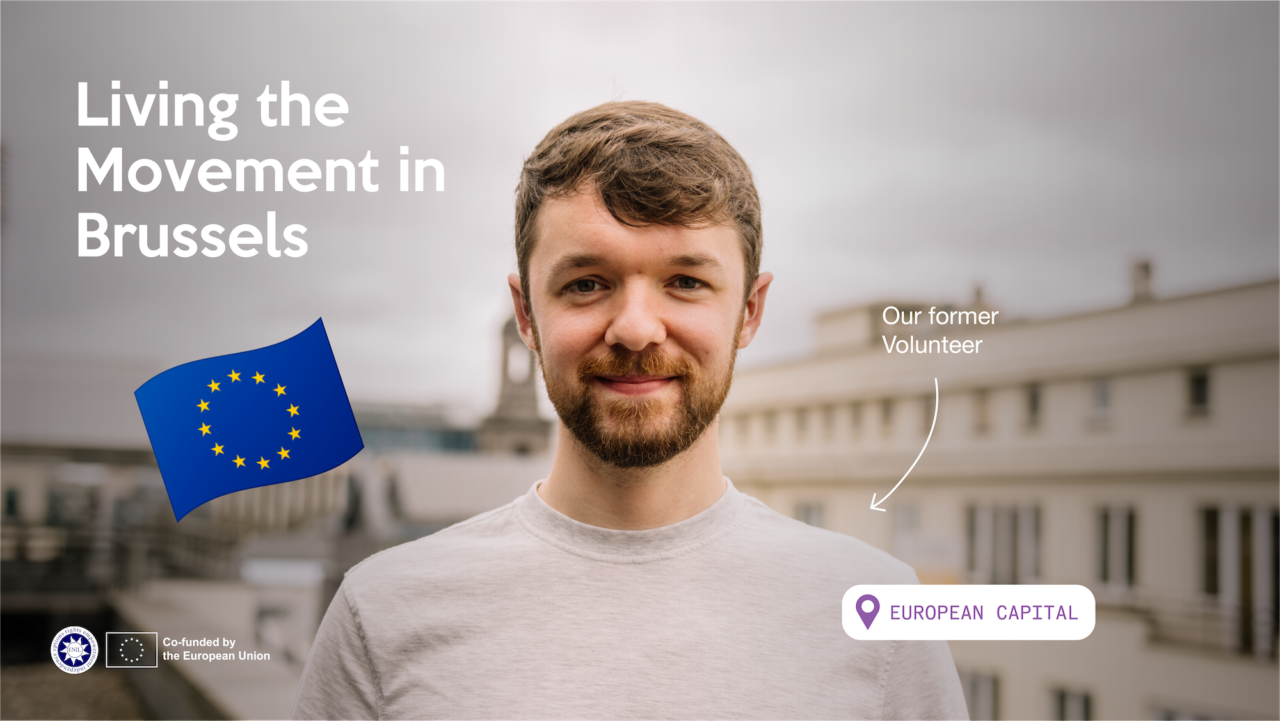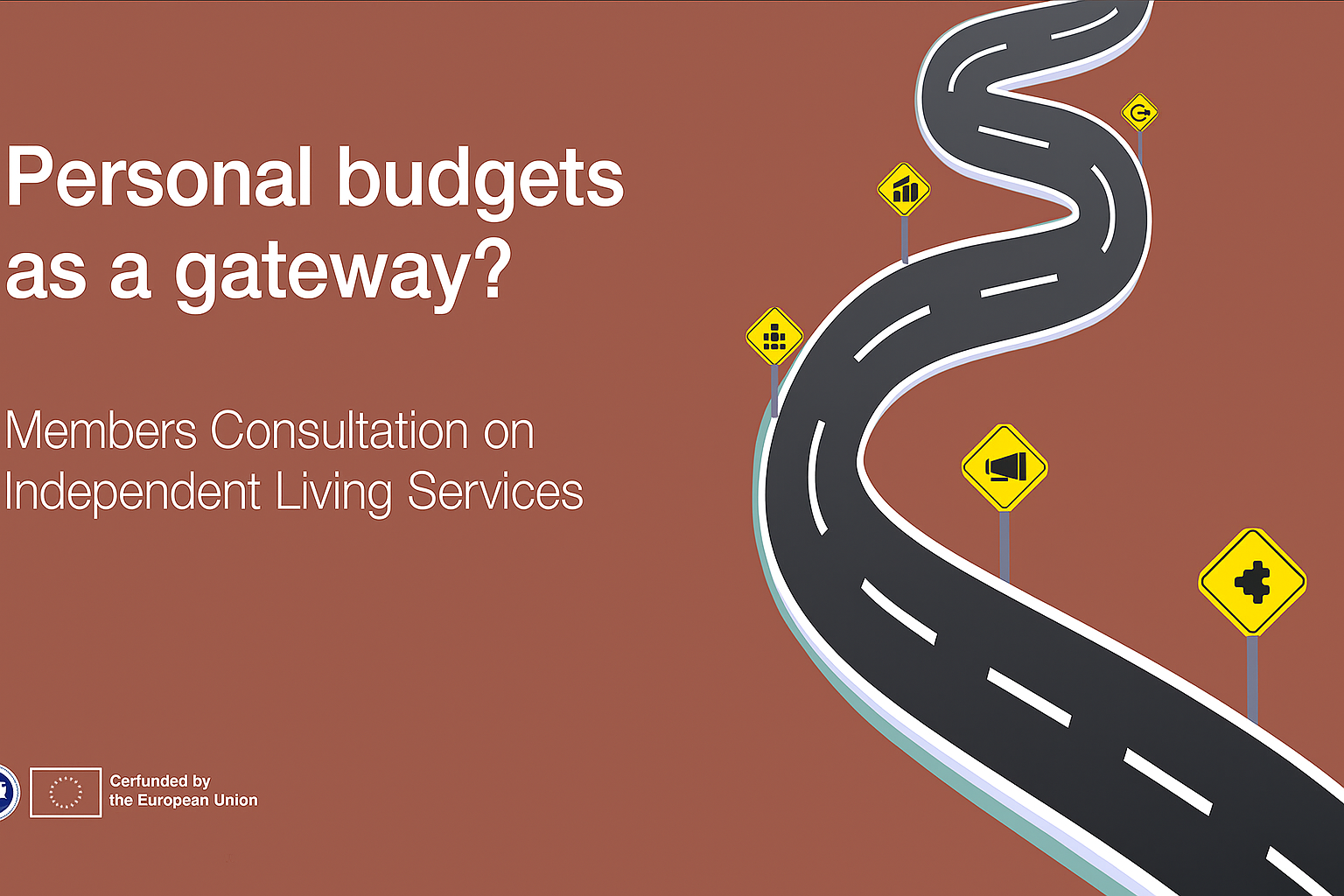My time with ENIL has come to an end, and I can say, without a hint of exaggeration, that it has been a transformative experience. For six months in the spring and summer of 2024, I lived and worked in Brussels, immersing myself in an environment that was totally new to me. A new job, a new house, a new country, all brought with it its joys and its challenges. But ultimately, I emerged with a renewed sense of purpose.
When I arrived in Brussels, I had just finished my undergraduate degree and was unsure of what would come next. I only knew that I wanted to expand my horizons, to contribute something greater to the disability rights movement. ENIL offered that and much more.
From the beginning, I found myself deeply embedded in the grassroots of the European disability rights movement. Through conferences, events and protests, I got to meet individual activists, representatives of NGOs and Members of the European Parliament. Within a few weeks of arriving in Brussels, I found myself on an aeroplane to Budapest, to participate in a Council of Europe study session focused on strengthening youth participation in democratic life. We brought to issues of young disabled people to the fore, exploring not only the barriers they faced, but also concrete strategies to ensure their voices are heard.
My work at ENIL was varied and stimulating. I contributed to policy analysis on the role of independent monitoring bodies in institutions, drawing on the UN Subcommittee on Prevention of Torture’s General Comment No. 1 on Article 4 of the Optional Protocol to the Convention Against Torture (OPCAT). I conducted research in partnership with ALLFIE (Alliance for Inclusive Education) on the state of inclusive education policies and practices across Europe. The project gave me valuable insight into how education systems can either support or marginalise disabled students, depending on how policies are implemented on the ground.
I also had the opportunity to speak on a panel discussion organised by the European Disability Forum (EDF), where I shared my perspective on the opportunities and barriers that young disabled people face when volunteering. Alongside the heavy policy work and formal discussions taking place in the office and the government buildings of the EU capital, there was a lighter side to our work in Brussels. One of my most vivid memories is of spending afternoons traversing the city streets in search of recycled cardboard, destined to become placards for the Freedom Drive protest. Although I was unable to attend the event itself, the preparations we did made me feel deeply connected to it. It was a reminder that activism isn’t just about being on the frontlines; it’s also about the work that happens behind the scenes, the countless small acts that make collective action possible.
Outside of work, Brussels itself became a place of discovery. I lived in a shared building with twenty housemates, who hailed from Turkey, the United States, and everywhere in between. Our home was a mix of cultures and languages, but despite the differences, it became a place of genuine connection. Brussels is a wonderfully diverse city, full of cultural events and festivals to enjoy. One day, while attending a protest at the Flemish parliament, a conversation was struck up on the topic of Irish folk music, and later I found myself attending a céilí, held, in all places, in the living room of a Belgian townhouse.
One of the things that was made readily apparent during my internship is that the disability rights movement continues to face serious challenges. The institutionalisation of disabled people remains a persistent issue, with apathy, or outright resistance, being shown to its dismantling. This, along with many other issues, shows how important the work of ENIL is. For those who wish to play their part in the disability rights movement, I cannot recommend highly enough volunteering with ENIL and participating in the ESC programme. My only regret is that I did not do it sooner!
This experience would not have been possible without the support of many people. Special thanks to Aoife, who made this opportunity a reality, my supervisor Rita, my mentor Daniel, and my colleagues Florian, Michael, Vita, Kamil, Ines, Stanislas, Antonella, Adela, Fionn, Vy, and Francesca. I’m also grateful to my sending organisation, VSI, for their continuous support, and to JINT and the Council of Europe for the invaluable opportunities they provided. There are many others, too many to name here, who helped make my time in Brussels what it was. I leave inspired, and ready for whatever comes next.



